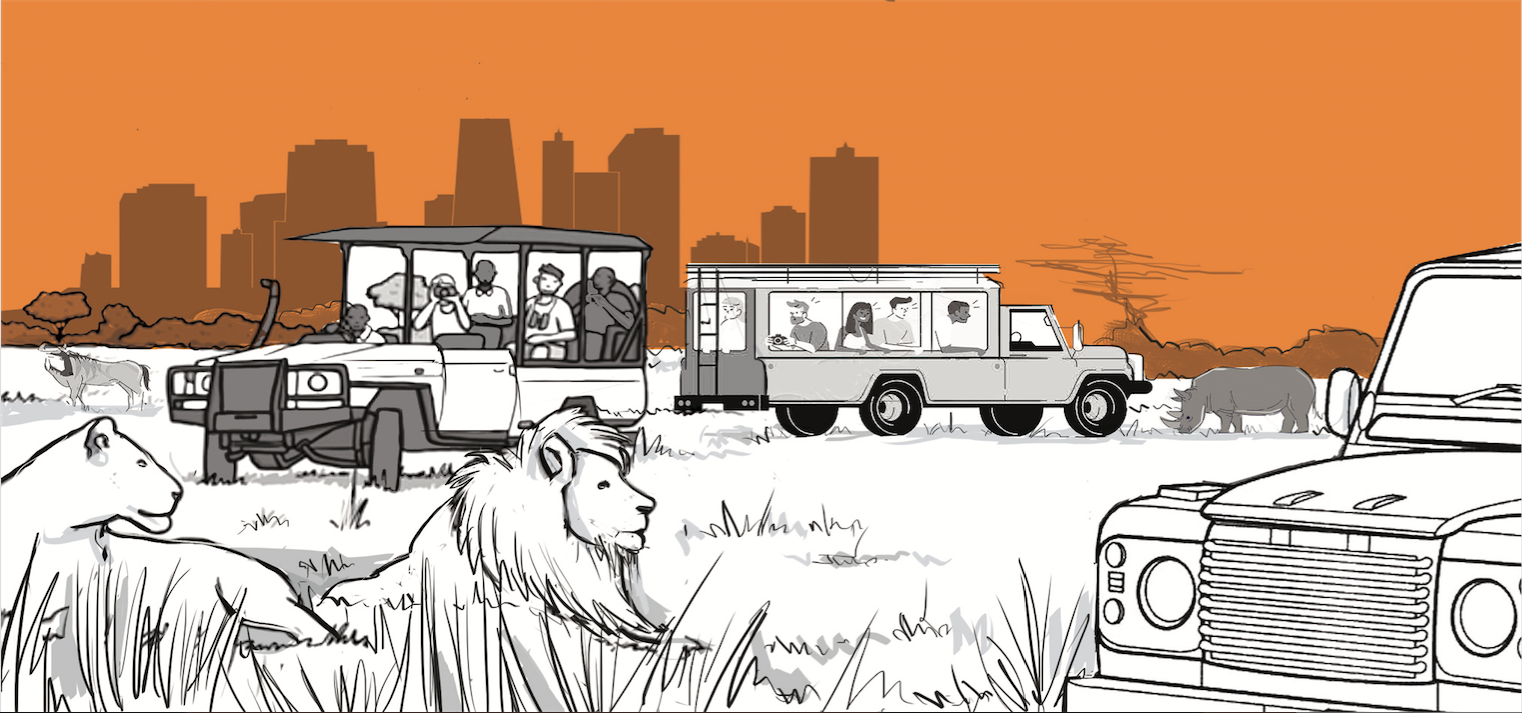
 Nairobi National Park
Nairobi National Park
Roughly 12 years ago, I had a lesson in the scope and potential of “conference tourism,” which I have not forgotten.
I was attending a particularly intensive conference workshop in Cape Town, with sessions regularly going into the early evening. But on the last day, with the final session at last over, I spent the afternoon killing time by the hotel’s poolside waiting for my flight back home, which was still some hours away.
That was where a number of the friends I had made during the past few days introduced me to their family members who had just flown in to join them, and with whom they were headed for Kruger National Park the very next day.
Now Kruger National Park is not as close to Cape Town as our own iconic Maasai Mara is to Nairobi—let alone the Nairobi National Park, which is famously contained within the city boundaries. Kruger is almost 2,000 km away from Cape Town and three hours away by air.
But Kruger is one of the world’s most famous wildlife safari destinations. And talking to my new friends (mostly Americans), I learned that the possibility of heading out to Kruger after the conference was over, had been a major reason why Cape Town had been selected as the conference venue by the organisers.
An epic safari experience is on the bucket list of many prosperous foreigners: and even if not particularly prosperous, this is something towards which they will diligently save.
Conference organizers, therefore, will usually arrange for heavily discounted group tours as part of a conference package. This is in order that, first, the man or woman who is actually attending the conference will not have spent their own money on getting to the country where the conference is to be held; and second, their family members will be able to join them in taking advantage of the discounts negotiated on their behalf for a visit to a place like Kruger.
I had already seen this same kind of thing a few years earlier, when I came up from Mombasa, where I lived at the time, to attend a major product launch in Nairobi, at which I was representing the BBC World Service.
Thanks to my BBC affiliation, I was booked into a 5-star hotel with the foreign journalists and not expected to make my way to the various events on my own steam, as other Kenyan journalists were.
There was a half-day trip to the Nairobi National Park at the end of the series of launch events. And of the roughly 20 journalists from all over Africa who were in attendance, I was the only one who declined to take up that opportunity for a mini-safari.
All the rest – from West Africa, Uganda, Tanzania, Southern Africa, etc – could not get into the tour vans fast enough, eager to see this famous Nairobi National Park that they had heard so much about.
All this made it perfectly clear to me that in any African country wishing to expand its tourism numbers (and hence create more jobs in the sector) a game park is a priceless asset.
And this was to later lead me to appreciate why Rwanda, for all its impressive efforts to expand its hosting of international conferences, has little chance of ever catching up with Kenya in this lucrative sub-sector of tourism.
The crown jewel of Rwandan tourism is “gorilla trekking” in the “impenetrable forest” which extends to Rwanda from Uganda.
But this is a niche product which can only be indulged in by a tiny handful of people at a time. It is also very expensive.
Had the product launch I mentioned been in Kigali instead of Nairobi, I don’t think those 20 or so fellow journalists would have had any chance of having an opportunity to engage in gorilla trekking.
So even though Kigali has a far better conference centre than our own Kenyatta International Conference Centre, insofar as there is much more to conferences than listening to globally renowned experts explaining their latest research, I believe Kenya still has an edge over Rwanda when it comes to hosting conferences.
Those who argue that Nairobi City could benefit from having all that valuable land, which is the Nairobi National Park, used for other purposes, overlook the bigger picture.
And this is that tourism is perhaps our greatest post-Independence economic success story, and yet we have only just scratched the surface of its potential.
We may yet double or even triple the number of high-spending visitors coming to Kenya. And conference tourism would be a key part of any such exponential growth in Kenyan tourism receipts.
But for this to happen, we need to leave the Nairobi National Park as it is.












